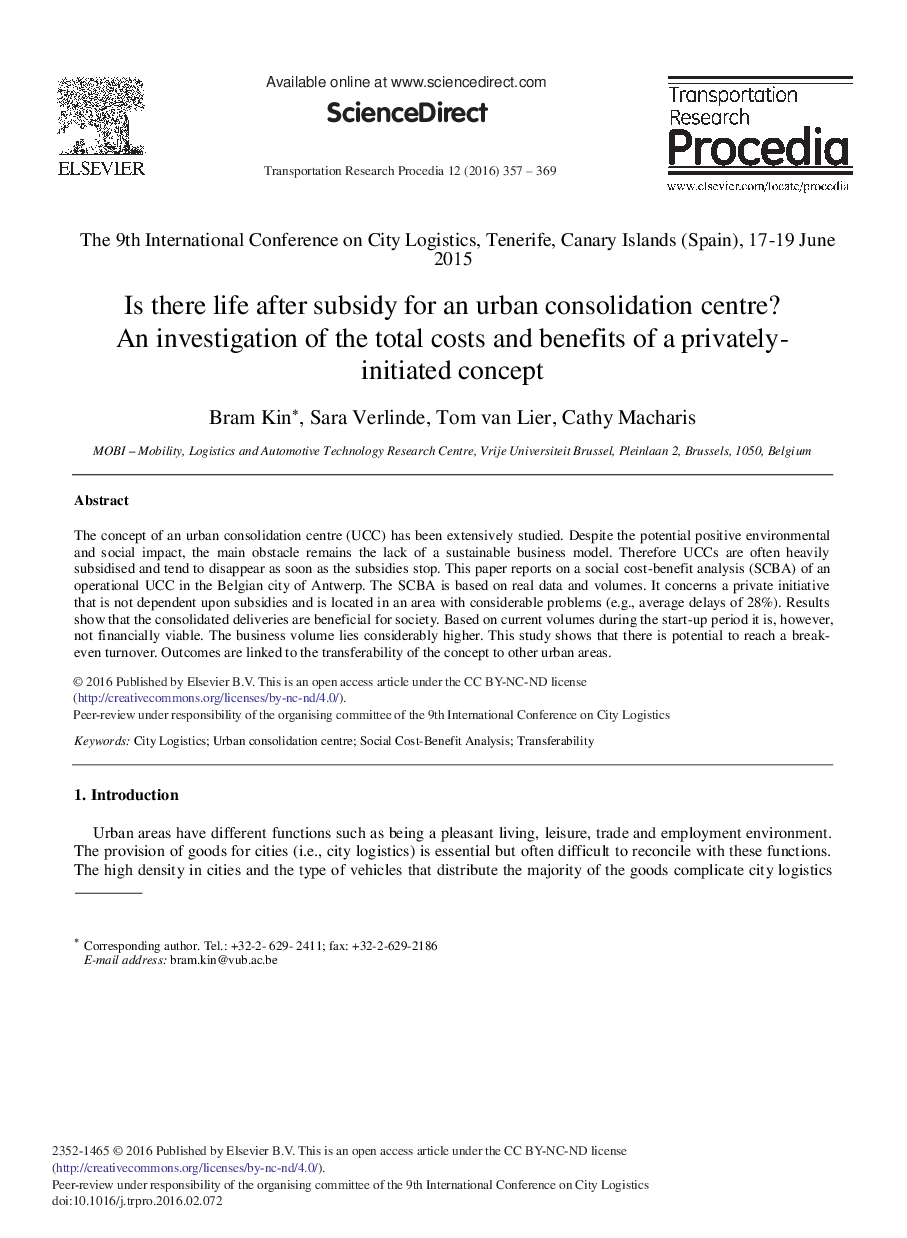| Article ID | Journal | Published Year | Pages | File Type |
|---|---|---|---|---|
| 1106605 | Transportation Research Procedia | 2016 | 13 Pages |
The concept of an urban consolidation centre (UCC) has been extensively studied. Despite the potential positive environmental and social impact, the main obstacle remains the lack of a sustainable business model. Therefore UCCs are often heavily subsidised and tend to disappear as soon as the subsidies stop. This paper reports on a social cost-benefit analysis (SCBA) of an operational UCC in the Belgian city of Antwerp. The SCBA is based on real data and volumes. It concerns a private initiative that is not dependent upon subsidies and is located in an area with considerable problems (e.g., average delays of 28%). Results show that the consolidated deliveries are beneficial for society. Based on current volumes during the start-up period it is, however, not financially viable. The business volume lies considerably higher. This study shows that there is potential to reach a break-even turnover. Outcomes are linked to the transferability of the concept to other urban areas.
